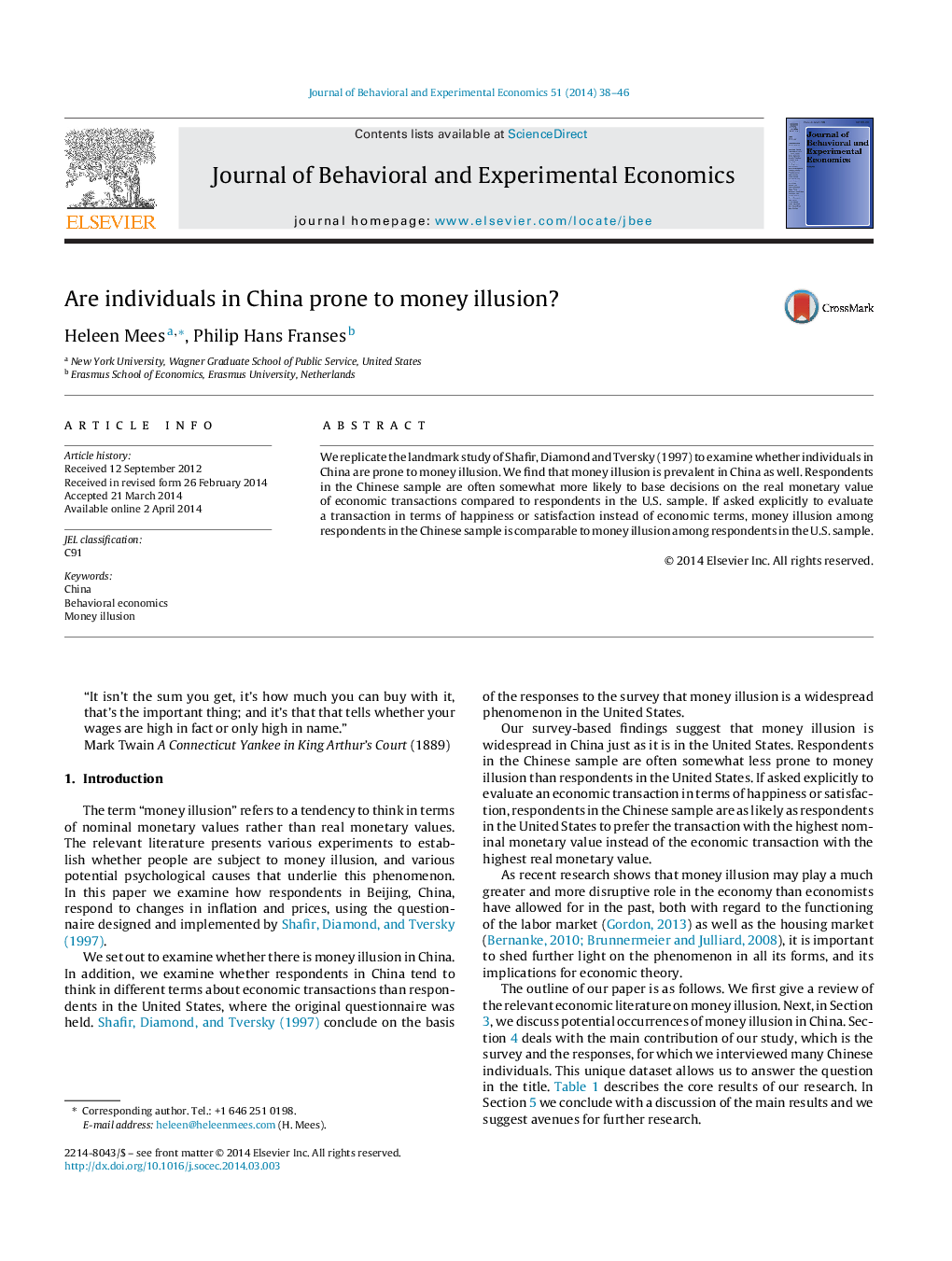| Article ID | Journal | Published Year | Pages | File Type |
|---|---|---|---|---|
| 881888 | Journal of Behavioral and Experimental Economics | 2014 | 9 Pages |
•Money illusion appears widespread in China, just like it is in the US.•Respondents in China are often somewhat less prone to money illusion than respondents in US.•In case happiness is key, respondents in China are equally prone to money illusion as respondents in US.•The results may reflect the difference in affluence between respondents in the US and China.
We replicate the landmark study of Shafir, Diamond and Tversky (1997) to examine whether individuals in China are prone to money illusion. We find that money illusion is prevalent in China as well. Respondents in the Chinese sample are often somewhat more likely to base decisions on the real monetary value of economic transactions compared to respondents in the U.S. sample. If asked explicitly to evaluate a transaction in terms of happiness or satisfaction instead of economic terms, money illusion among respondents in the Chinese sample is comparable to money illusion among respondents in the U.S. sample.
